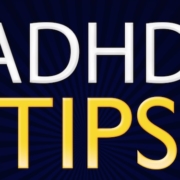7 Benefits Of Outdoor Play For Children With ADHD
7 Benefits Of Outdoor Play For Children With ADHD
7 Benefits Of Outdoor Play For Children With ADHD
Imagine if your child with ADHD could feel calmer, relaxed, more focused, and genuinely engaged with their environment. By encouraging them to play outside, this could become a reality. In this article, we explore why it might be time to open the doors and let your child explore the true potential of outdoor play.
What Are The Benefits Of Outdoor Play For ADHD?
Outdoor play is about more than just letting off steam. Research shows that spending time outside can help to improve symptoms of ADHD. For instance, children who regularly play outside in a green area with lots of grass and trees have been shown to have milder ADHD symptoms than those playing either in built-up environments or indoors.
So let’s look specifically at what benefits outdoor play can offer for your child with ADHD.
1. Improved Focus and Attention Span
Children with ADHD typically have significant challenges with their focus and attention, which can make concentrating on schoolwork difficult for them. When playing outside, children naturally focus on what they enjoy, allowing their brains the space to recover and re-set.
2. Reduced Hyperactivity and Impulsivity
Regular physical activity in an outdoor environment can offer a healthy outlet for excess energy, leading to calmer behavior and fewer impulsive actions. Notably, children with high hyperactivity levels show greater symptom improvement following regular play in a green space.
3. Enhanced Emotional Well-being
Spending time in nature can have a significantly calming effect on children with ADHD. This can help to reduce the risk of co-occurring mental health conditions, such as anxiety and depression.
4. Stronger Social Skills
Children with ADHD often struggle socially. Outdoor play offers an excellent opportunity to participate in group activities in large open spaces. This can have a positive impact on both their emotional and social development.
6. Physical Health Benefits
Outdoor play naturally encourages children to get plenty of physical exercise. This helps to strengthen muscles and promote healthy weight and cardiovascular fitness.
7. Sensory Stimulation
Outside areas tend to be sensory-rich, providing children with plenty of opportunities to explore different colors, textures, and sounds. Children with ADHD are more likely to have sensory processing issues, and these experiences can help them to address these.
Choose Pathways Neuropsychology Associates Today!
At Pathways Neuropsychology Associates, we are here to help you navigate the daily challenges of living with ADHD. Contact us today to find out more about our specialized services.
#top .av_textblock_section.av-av_textblock-4b54a9376293c03bbf09fa7edbc1f1cb .avia_textblock{
font-size:16px;
}
At Pathways Neuropsychology Associates we use evidence-based evaluation instruments and treatments to get you, your loved one, or your child on the path to success. If you or someone you love are struggling with the symptoms of ADHD, call now and get started!
.flex_column.av-av_one_full-d3e509f4637007bf756d5d5b286252b3{
border-width:2px;
border-color:#d9d9d9;
border-style:solid;
border-radius:0px 0px 0px 0px;
padding:20px 20px 20px 20px;
background-color:#f8f8f8;
}
The post 7 Benefits Of Outdoor Play For Children With ADHD appeared first on Pathways Neuropsychology Associates.
Source: ADHD
7 Benefits Of Outdoor Play For Children With ADHD






 Medication in Your DMs?
Medication in Your DMs?


